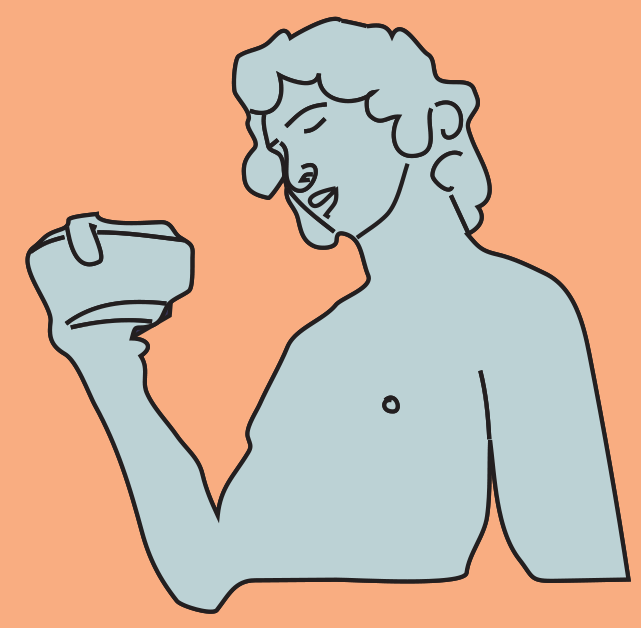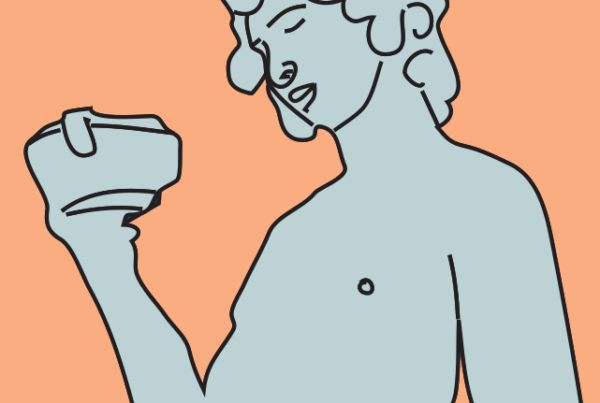

Here is a story we all know about: a teacher asks the class to write on a piece of paper what they want to become when they grow up. Most of the children write about professions they want to follow, but one of them writes ‘I want to become happy’. This story is told to emphasize that ‘happy’ is the better answer. I doubt whether it is. I do not think happiness is the ultimate goal in life for everyone and I have several reasons why this is not the case for me. But before I share them, I think it is important to settle on a definition for happiness.
I think of happiness as a state of joy and contentment. Most definitions of happiness include the idea of absence of pain and presence of positive feelings. Some might say that happiness is the basis for anything that we strive for, because obtaining it will make us happy. I would say that not all the things we want will definitely bring happiness, therefore it is not the case that happiness is the destination we all journey toward. As I will explain later on, there are things like knowledge, art, justice or making someone else happy which definitely bring meaning to someone’s life, but not necessarily happiness. Of course, I believe happiness is an important part of life and should be cherished. However, there are several things about happiness that make me hesitant to set happiness as my ultimate goal in life.
First, I value discontent. For me, a lack of satisfaction encourages me to make an effort to think about alternatives in decision-making, to question whether where I am and what I am doing is in line with my values or if it is beneficial to my development, and to imagine new possibilities. I prefer to be discontent because it pushes me to explore life and discover new things. Contentment would probably make me stagnant. I think that discontent is often the root of progress and creativity. We would hardly try to make things better if we already think everything is perfect. I must say that to me happiness and being motivated to improve yourself are not mutually exclusive. Not that I avoid being happy for fear of becoming complacent, but I try to listen to dissatisfaction and investigate its roots whenever I feel like things do not work as they should, instead of immediately trying to find something that makes me happy and shoo away the negative feelings.
My second reason is my curiosity about life. I would like to explore life as it is, with good and difficult parts. This means I can accept that there will be moments of sadness, anger, and frustration. My most important goal would be to understand rather than be happy. I agree that negative feelings are unpleasant, but I think they are real and just part of the process. Given the choice to learn about a sad truth or remain happy and oblivious, I would choose to know the truth. I’m pretty much against the current pressure to be happy in our society – the idea that happiness is a gold standard for a good life. It makes others feel guilty for not being happy yet. I find authenticity more important than appearing to be happy. It’s good to be happy, but it is not a disaster not to be happy – there is more to life than constantly radiating joy.
Lastly, connecting with others is another reason why happiness is not my main focus. I think meaningful relationships with others involve the capacity to empathize and the willingness to sometimes set happiness aside, have difficult conversations, and share someone’s pain. Setting happiness as an ultimate goal would make me centre everything on myself, which is not a bad thing, but I am too interested in others to avoid facing things that could interfere with my happiness.
These are my reasons for why I am ‘not interested in happiness’ as an ultimate goal, but there are many more. Some may choose justice over happiness. For them fairness, equal treatment, respecting the agreed-upon rules would take priority. There are people who will value science or art more than happiness. Think about scientists who devote their lives to expanding knowledge, or artists who put all their efforts into a masterpiece that would send a message to the world. There are activists that do not mind embracing discomfort to make their voice heard. There are parents who struggle all their lives to give a better future for the next generations. The list is longer than it appears at first sight. I think the idea that happiness is what we all search for or should search for is wrong. This, of course, does not mean wanting happiness is wrong. In my case, I prefer to give happiness a chance to be the side effect, not a purpose in itself.

Here is a story we all know about: a teacher asks the class to write on a piece of paper what they want to become when they grow up. Most of the children write about professions they want to follow, but one of them writes ‘I want to become happy’. This story is told to emphasize that ‘happy’ is the better answer. I doubt whether it is. I do not think happiness is the ultimate goal in life for everyone and I have several reasons why this is not the case for me. But before I share them, I think it is important to settle on a definition for happiness.
I think of happiness as a state of joy and contentment. Most definitions of happiness include the idea of absence of pain and presence of positive feelings. Some might say that happiness is the basis for anything that we strive for, because obtaining it will make us happy. I would say that not all the things we want will definitely bring happiness, therefore it is not the case that happiness is the destination we all journey toward. As I will explain later on, there are things like knowledge, art, justice or making someone else happy which definitely bring meaning to someone’s life, but not necessarily happiness. Of course, I believe happiness is an important part of life and should be cherished. However, there are several things about happiness that make me hesitant to set happiness as my ultimate goal in life.
First, I value discontent. For me, a lack of satisfaction encourages me to make an effort to think about alternatives in decision-making, to question whether where I am and what I am doing is in line with my values or if it is beneficial to my development, and to imagine new possibilities. I prefer to be discontent because it pushes me to explore life and discover new things. Contentment would probably make me stagnant. I think that discontent is often the root of progress and creativity. We would hardly try to make things better if we already think everything is perfect. I must say that to me happiness and being motivated to improve yourself are not mutually exclusive. Not that I avoid being happy for fear of becoming complacent, but I try to listen to dissatisfaction and investigate its roots whenever I feel like things do not work as they should, instead of immediately trying to find something that makes me happy and shoo away the negative feelings.
My second reason is my curiosity about life. I would like to explore life as it is, with good and difficult parts. This means I can accept that there will be moments of sadness, anger, and frustration. My most important goal would be to understand rather than be happy. I agree that negative feelings are unpleasant, but I think they are real and just part of the process. Given the choice to learn about a sad truth or remain happy and oblivious, I would choose to know the truth. I’m pretty much against the current pressure to be happy in our society – the idea that happiness is a gold standard for a good life. It makes others feel guilty for not being happy yet. I find authenticity more important than appearing to be happy. It’s good to be happy, but it is not a disaster not to be happy – there is more to life than constantly radiating joy.
Lastly, connecting with others is another reason why happiness is not my main focus. I think meaningful relationships with others involve the capacity to empathize and the willingness to sometimes set happiness aside, have difficult conversations, and share someone’s pain. Setting happiness as an ultimate goal would make me centre everything on myself, which is not a bad thing, but I am too interested in others to avoid facing things that could interfere with my happiness.
These are my reasons for why I am ‘not interested in happiness’ as an ultimate goal, but there are many more. Some may choose justice over happiness. For them fairness, equal treatment, respecting the agreed-upon rules would take priority. There are people who will value science or art more than happiness. Think about scientists who devote their lives to expanding knowledge, or artists who put all their efforts into a masterpiece that would send a message to the world. There are activists that do not mind embracing discomfort to make their voice heard. There are parents who struggle all their lives to give a better future for the next generations. The list is longer than it appears at first sight. I think the idea that happiness is what we all search for or should search for is wrong. This, of course, does not mean wanting happiness is wrong. In my case, I prefer to give happiness a chance to be the side effect, not a purpose in itself.

